Made in Montenegro
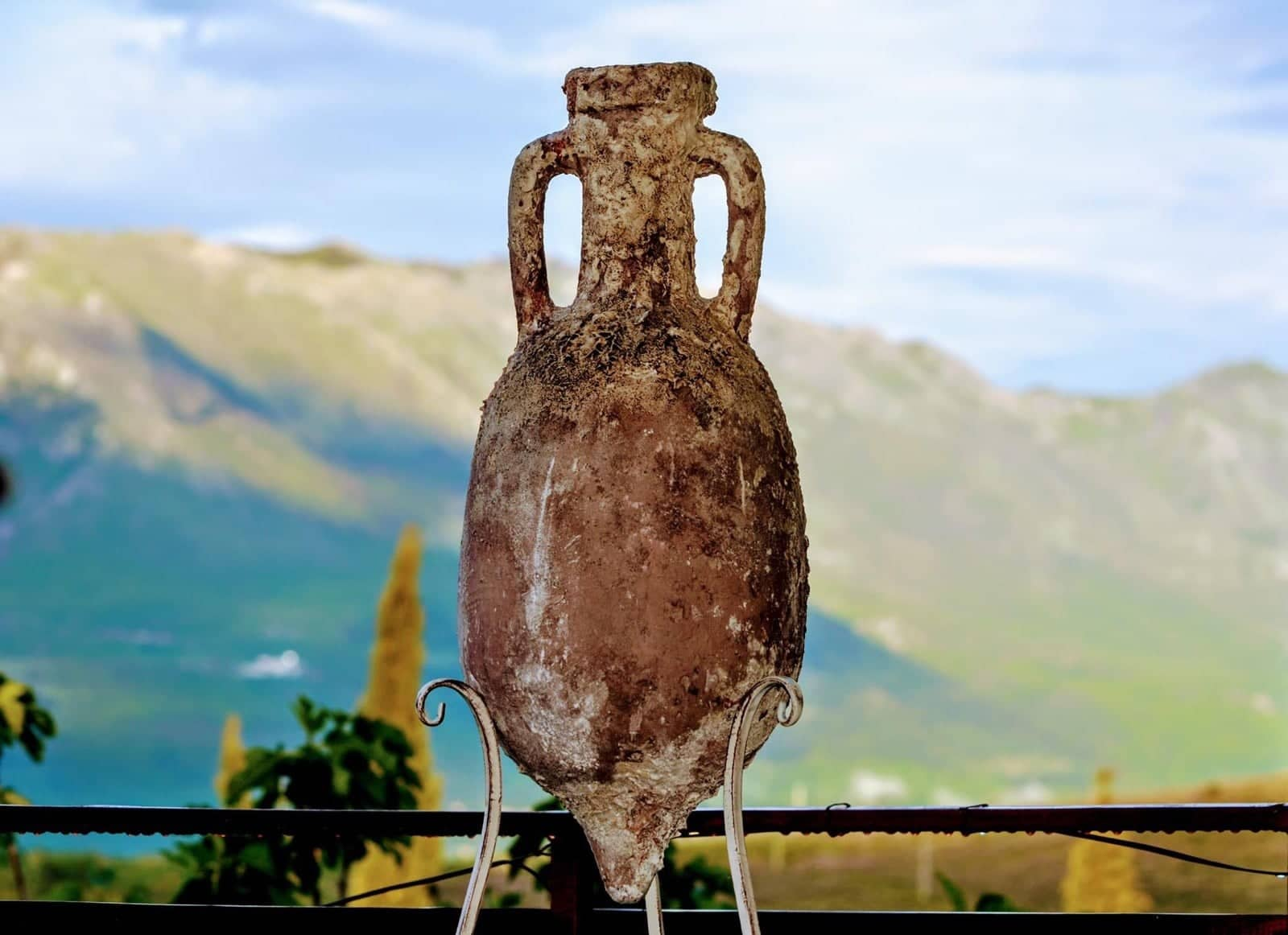
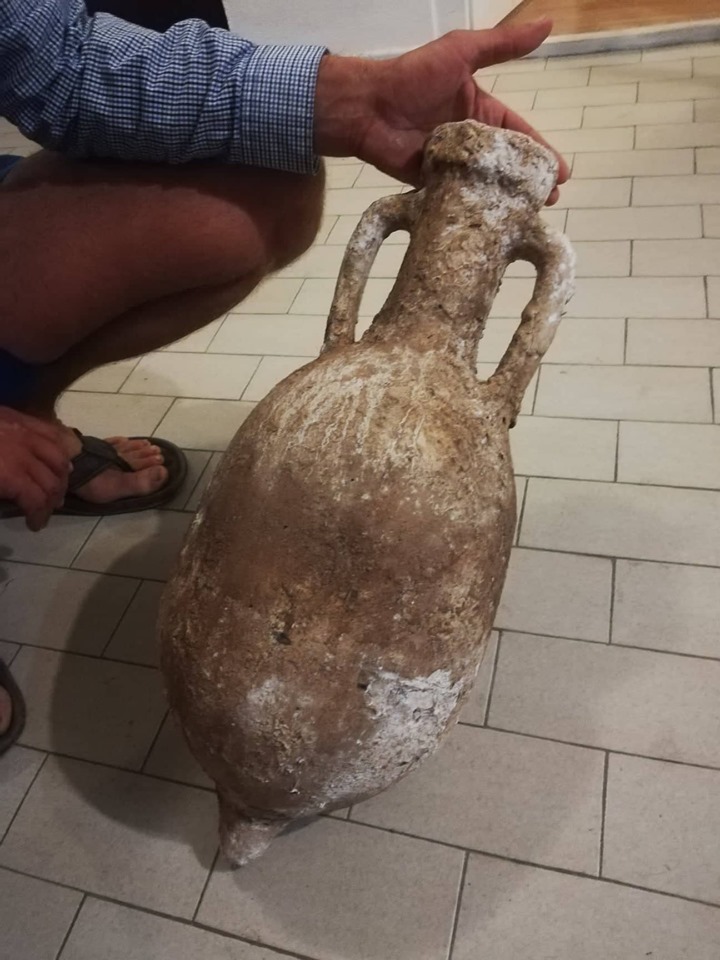
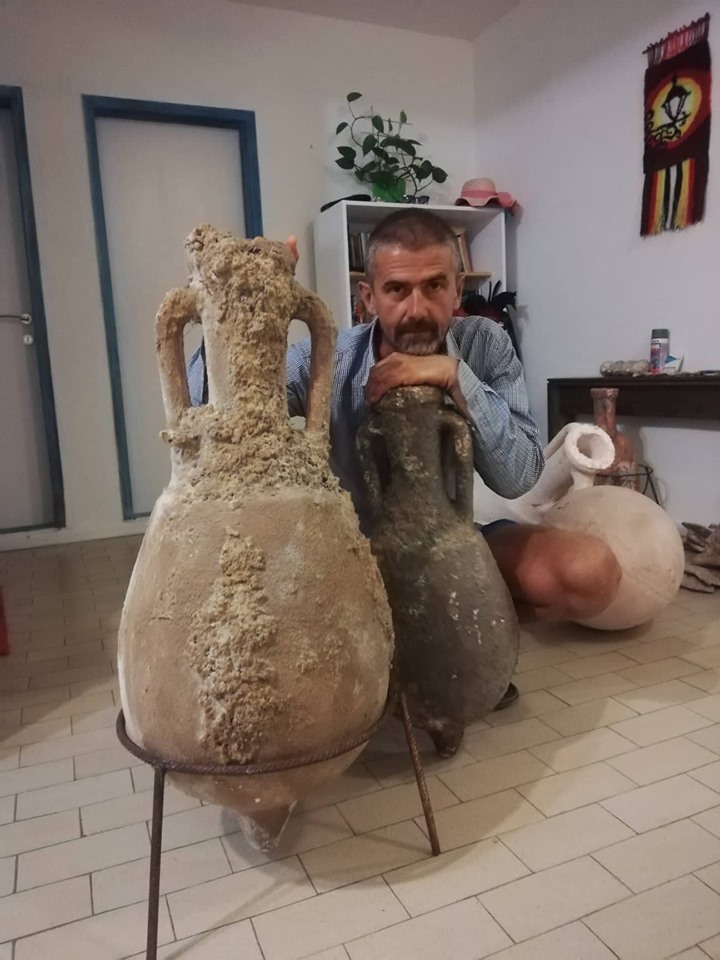
August 11, 2020 - Grbaljsko Polje and Krtoljsko Polje (fields in Grbalj and Krtoli) have fed the Bay of Kotor for centuries, and the fertile land of this area was paid for with gold and fiercely guarded. Grbaljsko Polje has been neglected in recent decades and turned into an industrial zone, but it still has the potential to produce high-quality organic food if it had someone to till the soil. Vladimir Španović from Tivat, who does not own a single square meter of arable land, is today the largest agricultural producer in our region. In Đuraševića Polje, at the Lokve site, he cultivates 3,000 square meters of vegetable gardens and 4,000 square meters of orchards.
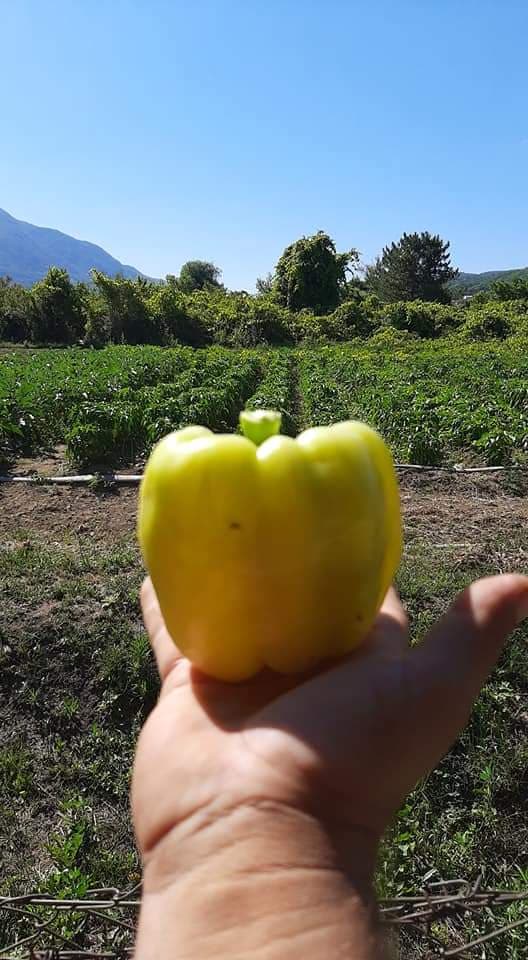
Photo: Private Archive
"Everything started completely spontaneously. I grew up in the center of Tivat, on asphalt, as someone who never had contact with the land. But, spending time in Grbalj, where I run a carpet service, I started to look at the fertile land all around me and began to think about starting a completely new business there. I started with some laying hens, as well as fattening chickens, keeping pigs. There were sows, the sows were farrowed, and little piglets were sold. Now I have an orchard and a garden on nearly three thousand square meters," explains Vladimir on how he started his business venture, which he says could not fail.
"I had no experience, except that my family was originally from Gradiška near Banja Luka, and my grandparents were engaged in agriculture and animal husbandry. Today, my uncle is engaged in cattle breeding. In principle, I have always been attracted to it. But I have never actually worked on the land or helped anyone in agriculture before."
• Today, what you are doing is almost an attraction. When we were growing up, everyone who had a backyard was engaged in cultivating the land, at least for their own needs.
"Especially in Grbalj, people were primarily engaged in agriculture and animal husbandry. I have many friends of my generation who lived from agriculture, primarily Grbalj tomatoes and Grbalj peaches. There are no such peaches today. Not just those specific ones, but none at all. In the entire Grbaljsko Polje today, I am not sure that there are a total of 500 peach trees."
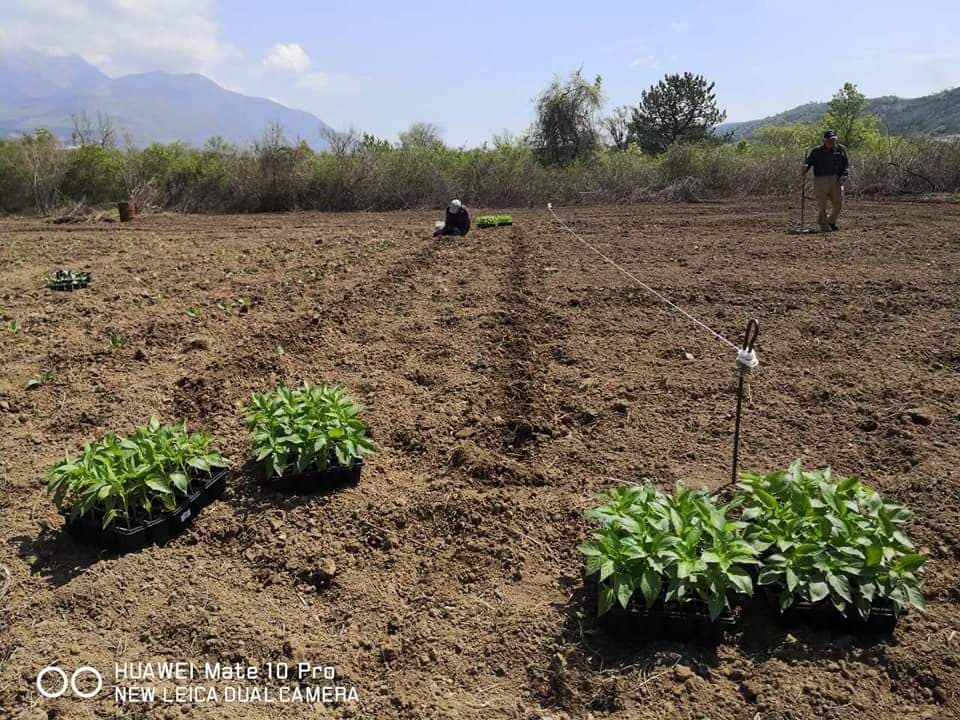
Photo: Private archive
• Considering that you spend a lot of time with people from Grbalj, have you ever commented on the reasons for the disappearances? Most of the Grbalj villages are still inhabited, people live in houses that have backyards, and they have fields that can be cultivated.
"Thirty years ago, when they were actively cultivating the land, they were children. Usually, it was difficult for them to go to the field because they would be going twice a day. Often, they would go on small motor cultivators, so the journey from Lješevići to the plot took half an hour or more. Then the whole morning watering of tomatoes, not with motor pumps that we have today, but with cans. They took water from the well, and no one then had fewer than 2000 stalks of tomatoes, plus all the other vegetables. At the time, the job was very strenuous and exhausting, especially for young people who wanted the sea and swimming rather than working in the fields. And then came the war years, and everything was devalued, and that work was no longer profitable. Until the war, agriculture was a very prosperous business.
Here is one piece of information from a man who lived off the land, who ceded the land to me for use - his mother brought home three of her father's salaries from Tivat market square on Saturdays, where she would be from seven in the morning until noon. On other days, one at a time. We are talking about the period until the beginning of the war. And then the buyers appeared, the prices dropped drastically, and everyone lost interest in that job. Import lobbies also took care of that.
The other thing is that the people who did all the work back then got older over time. The younger generations were employed by companies and only jumped out on weekends to help their parents. As the parents got older, the field was forgotten, and only the small plot around the house was cultivated for their own needs. And when the parents died, the children no longer wanted to work for their individual needs. That is why today we have the Grblajsko field, which has healed like the Amazon."
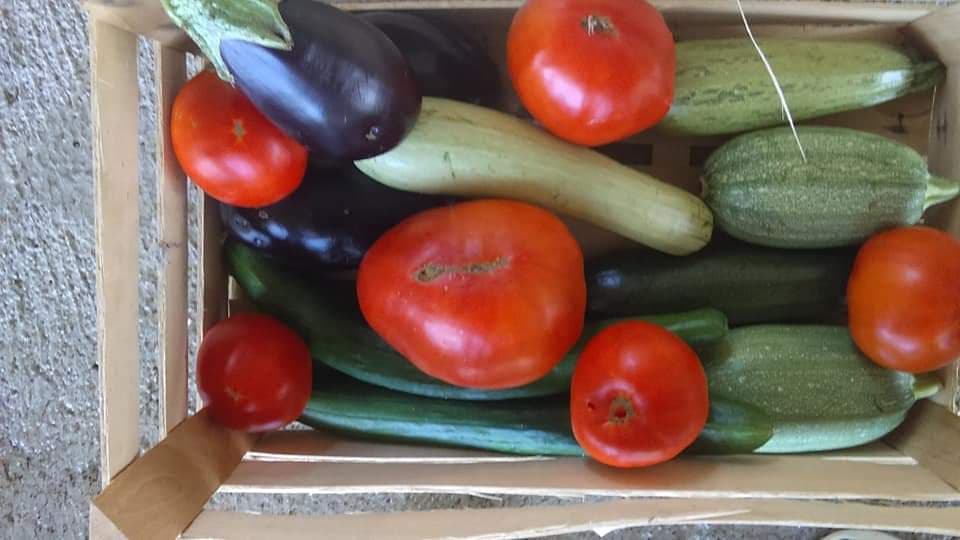
Photo: Private archive
• Today, Grbaljsko Polje is primarily an industrial zone. Still, Grbalj is big.
It is safe. Kovačko Polje can be cultivated, and Krtoljsko Polje has not been devastated in terms of construction. It has healed, but it can all be cleared. In Donji Grbalj, below the village of Kubasi, we also have a large field. There is also land in Glavatičići. It's all just a forest today.
• There is a lot of unused agricultural land, and we are all aware of that. You went into business without a single square meter in your possession. Can and should your example serve others? I ask this especially considering the current situation and the fact that already this fall, we will all be fully aware that the state of a country's economy is primarily reflected in the state of its agriculture?
"I would like to have a neighborhood that I would give my working hands to, and that would provide for me tomorrow. However, I doubt that anyone will get caught up in these things. Our people have been running away from work lately. That is what sociologists should give a definition to - what happened to our people? I have a feeling everyone has condensed. Many sold the land. But even those who haven't, and haven't been living well lately, don't want to work.
In general, we are a condensed nation. We are all too good for a hard day's work, we feel that work is dirty, beneath us. I have been running a carpet service for ten years. You can't find a worker. Some young guys come to work for a short time, but it is out of the question that a family man will accept such a job. And it's working with regular working hours, where you can't earn less than 500 euros. But you can't find a worker like that. The other thing is that everyone wants to be managers, to make millions, trillions. God forbid anyone sees you carrying a dirty carpet from someone's house."
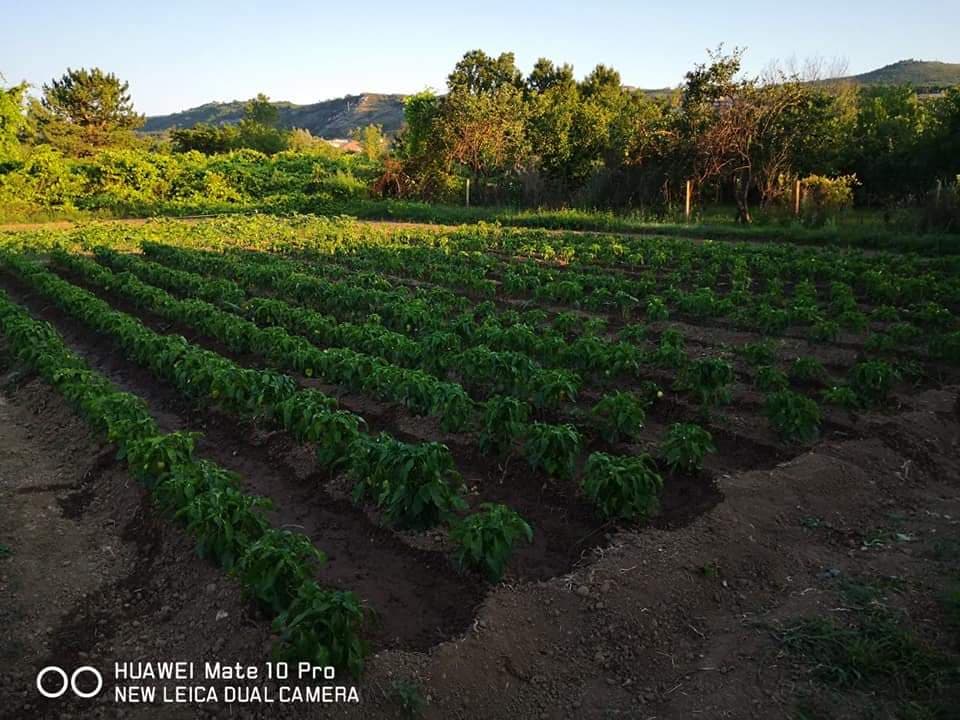
Photo: Private archive
• Nowadays, the work of farmers is much more comfortable. Still, there is work to be done. What does a typical workday look like for you?
My workday starts around seven in the morning, I feed the animals, then deal with the carpets, and around 1 pm the chickens need to be let through the orchard. In the afternoon, the animals from the pasture slowly start moving towards their pens. Then there is a new round of feeding the animals, and then the delivery of carpets."
Vladimir returns home from work around 9 pm. He returns tired, but also very satisfied, because, as he says, he lives from his job.
"I am my own boss. When I decide to, I can go and not work for a few days. Of course, this does not apply to the farm. You must always be present there. But I can close the carpet service for a few days when I need to rest. What is even more important - I know what my family eats. The food we buy in stores and markets is mostly chemically treated."
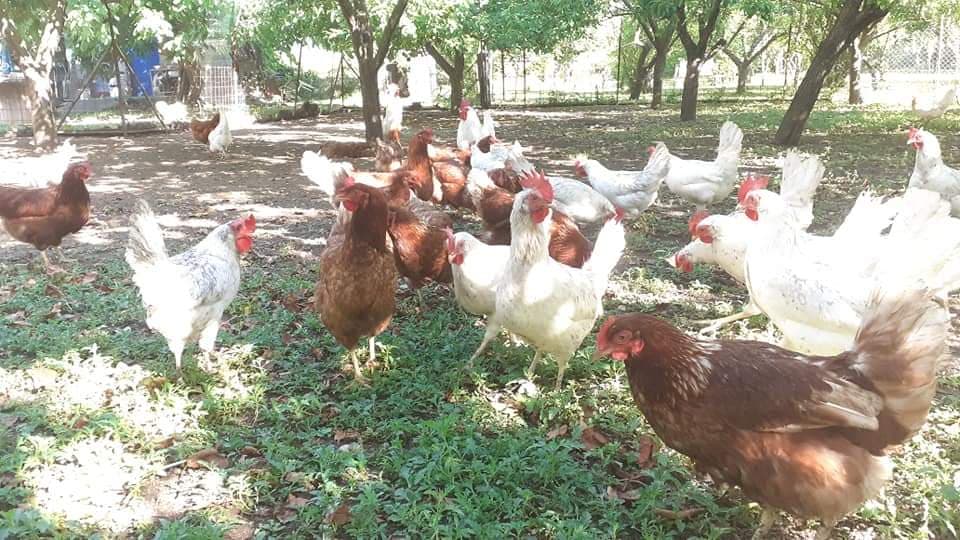
Photo: Private archive
This proud and hardworking host has opted to grow organic food.
"Out of 500 tomato plants, 200 are already unusable because flamingos attacked them. Some funds are available for organic production, but I just didn't get around to dealing with it. It will be enough for my family, " Vladimir will be satisfied, emphasizing that there are no problems with moving surplus products.
"Even if I had 10,000 square meters for growing, I would sell all my vegetables. I am in negotiations to lease another eight thousand square meters so that I can expand the orchard and be able to raise more animals. "
Fruit-wise, Vladimir currently offers pears, apples, cherries, sour cherries, figs, wild and cultivated pomegranate, peaches and nectarines, and his vegetables include the famous Grbalj tomato, but also ordinary-hybrid varieties, as well as all kinds of peppers, cucumbers, eggplants, rocket, and watermelon.
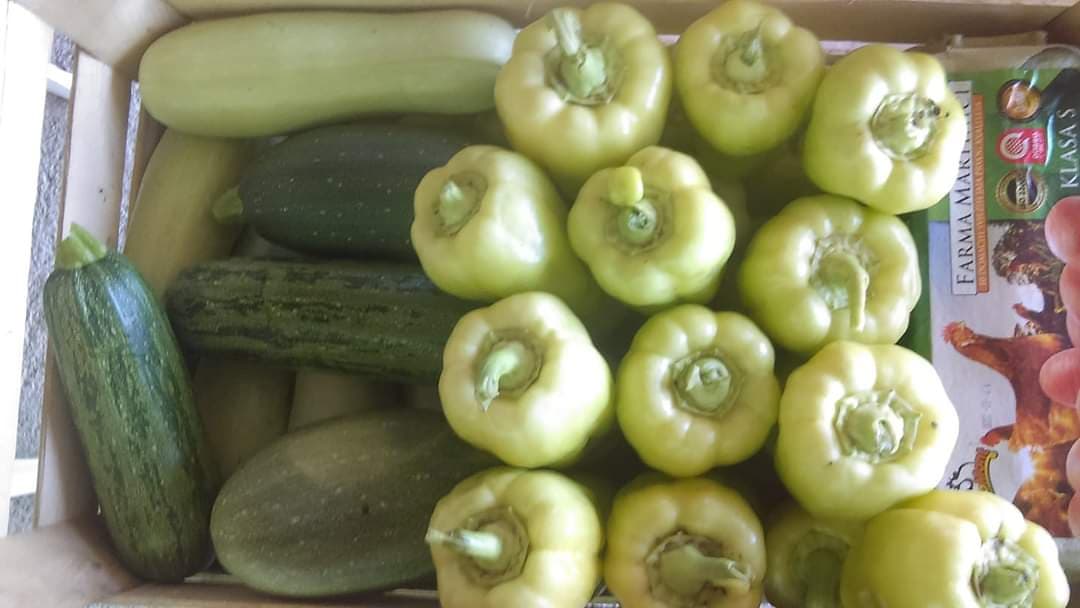
Photo: Private archive
"Producers from Zeta and Ulcinj are known for watermelons, but that is not what is offered from Grbalj, as far as sugar is concerned. Grbaljsko Polje is a gold mine that no one uses because no one wants to work, "Vladimir Španović states with sadness.
Vladimir takes care of his farm by himself, and when it is the planting or harvesting season, he hires friends who come to help him. He says that he would gladly hire someone to help him regularly, but no-one is interested, even now, when it is increasingly certain that healthy food will soon be the highest luxury for all of us.
The farm of the Španović family is currently the largest agricultural producer in Grbalj. Vladimir says this itself is a sad fact.
"Thirty years ago, every family in Grbalj did what I do, even more. Today, I am interesting as the "last Mohican", and I am not even from Grbalj. It is sad what Grbaljsko Polje looks like. I have been clearing the plot where I plant today for half a year. I was not ready to pay someone for that service, so all winter, as much as I could from other jobs, I slowly cleared the land given to me for use without any compensation."
Vladimir emphasizes that many people from Grbalj would give their agricultural properties for use, but there are no interested parties to take them on. If he could, he would model the whole Grbaljsko field, he points out excitedly.
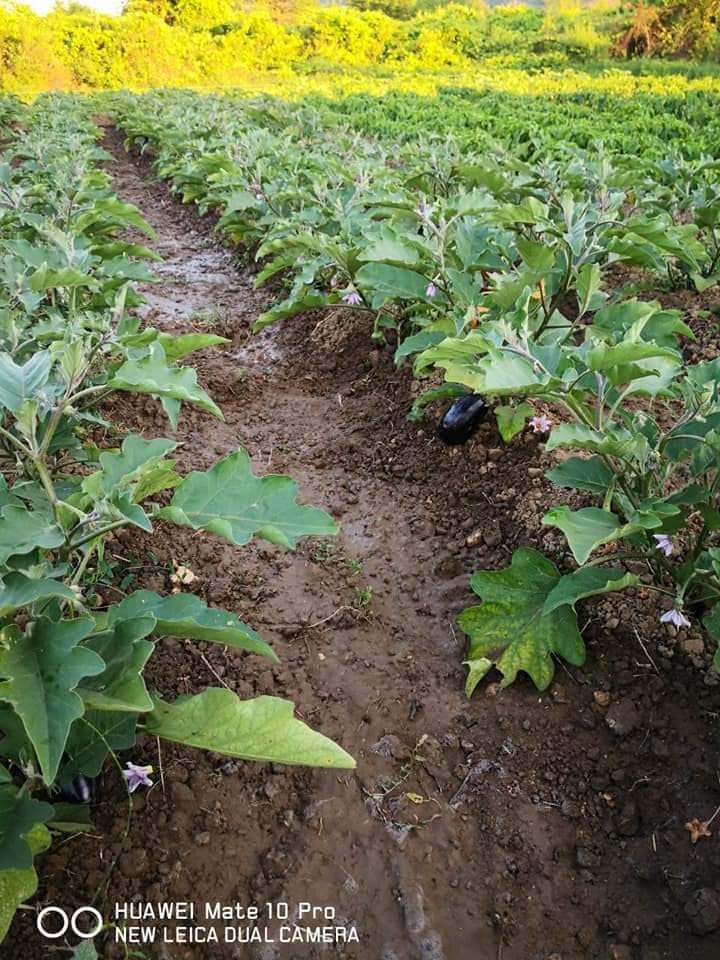
Photo: Private archive
Wanting to inspire others to follow in his footsteps, Vladimir brings us another piece of information at the end of our conversation, which, as he says, is not made up but received from a man from Grbalj who has been keeping goats all his life.
"With only ten goats, you have a guaranteed monthly salary of at least 500 euros, which means that in addition to milk, you also sell cheese and goat meat," Vladimir concludes jokingly:
"It's a challenging job. You have to graze the goats for two hours in the morning, and then again in the afternoon. While the goats graze the fresh grass, you rest in the shade with a newspaper or book. Tough work."
May 10, 2020 - "Let's buy healthy! Let's buy Domestic Food! Let's help ourselves and others and use the size of our country to have a personal and honest relationship with each food producer! "- calls the FB group Kupujmo domaće! - podržimo male proizvodjače hrane u Crnoj Gori- "Let's buy domestic food - let's support small producers in Montenegro."
The group was started on April 20 by a small group of enthusiasts to support producers in the current circumstances, and making quality, homemade food available. Although it has existed for less than three weeks, it has managed to gather over 200 producers and almost 30,000 members.
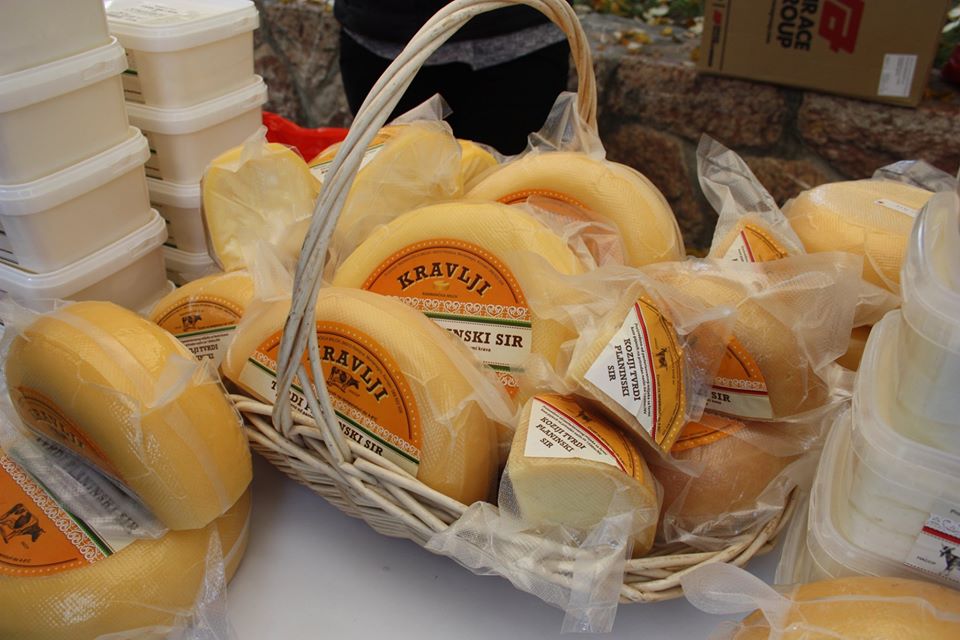
We bring you an interview with Ivan Bošković, one of the initiators of the FB group "Let's buy domestic food- let's support small producers in Montenegro."
TMN: Although launched less than three weeks ago, the FB group managed to gather over 200 producers and almost 30 thousand members. What prompted you to this idea?
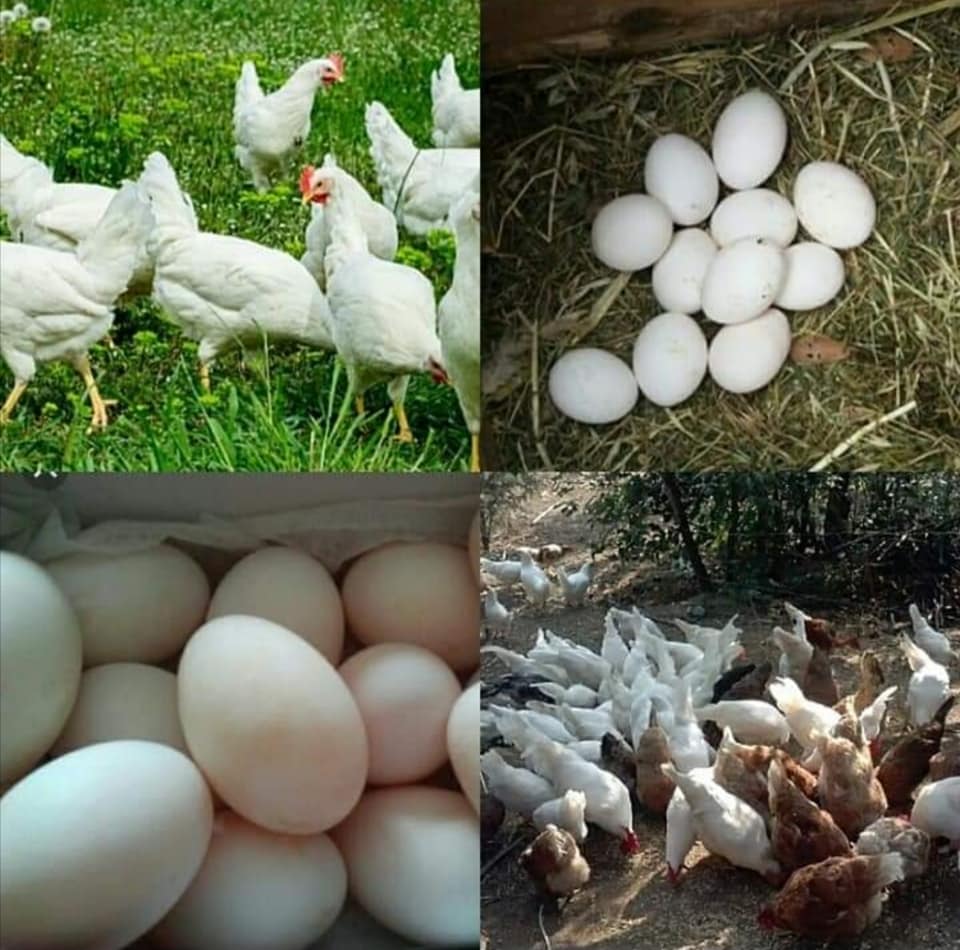
FB Group Kupujmo domaće! - podržimo male proizvodjače hrane u Crnoj Gori
TMN: Were you surprised in how short time the initiative you launched was so successful?
TMN: Although your initiative was offered entirely voluntarily to producers and citizens, it is a presentation of social entrepreneurship on its basis - all participants in the process benefit. Your gift to the community has triggered a chain of significant reactions and different ways of networking people.
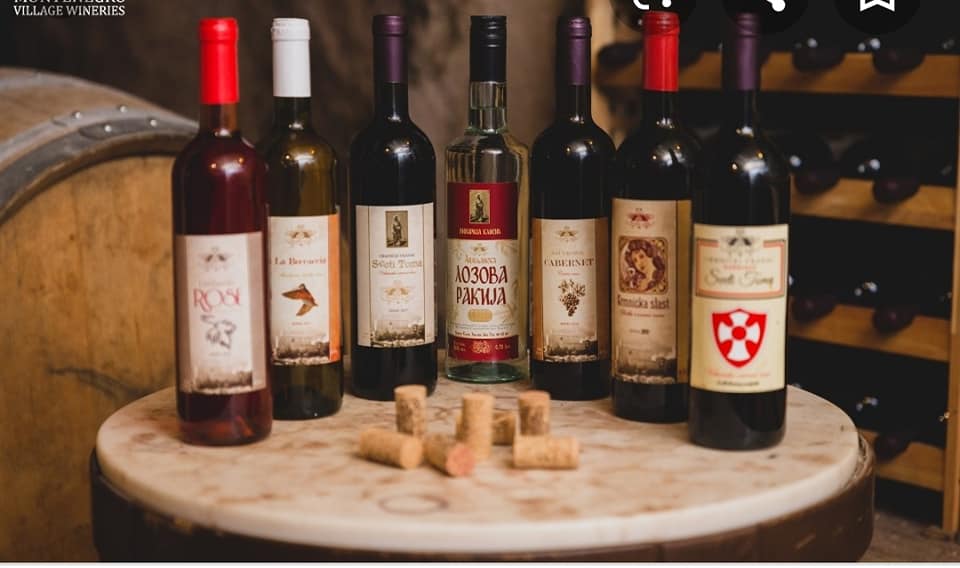
TMN: What feedback do you get from group members? What are the reactions of the manufacturers?
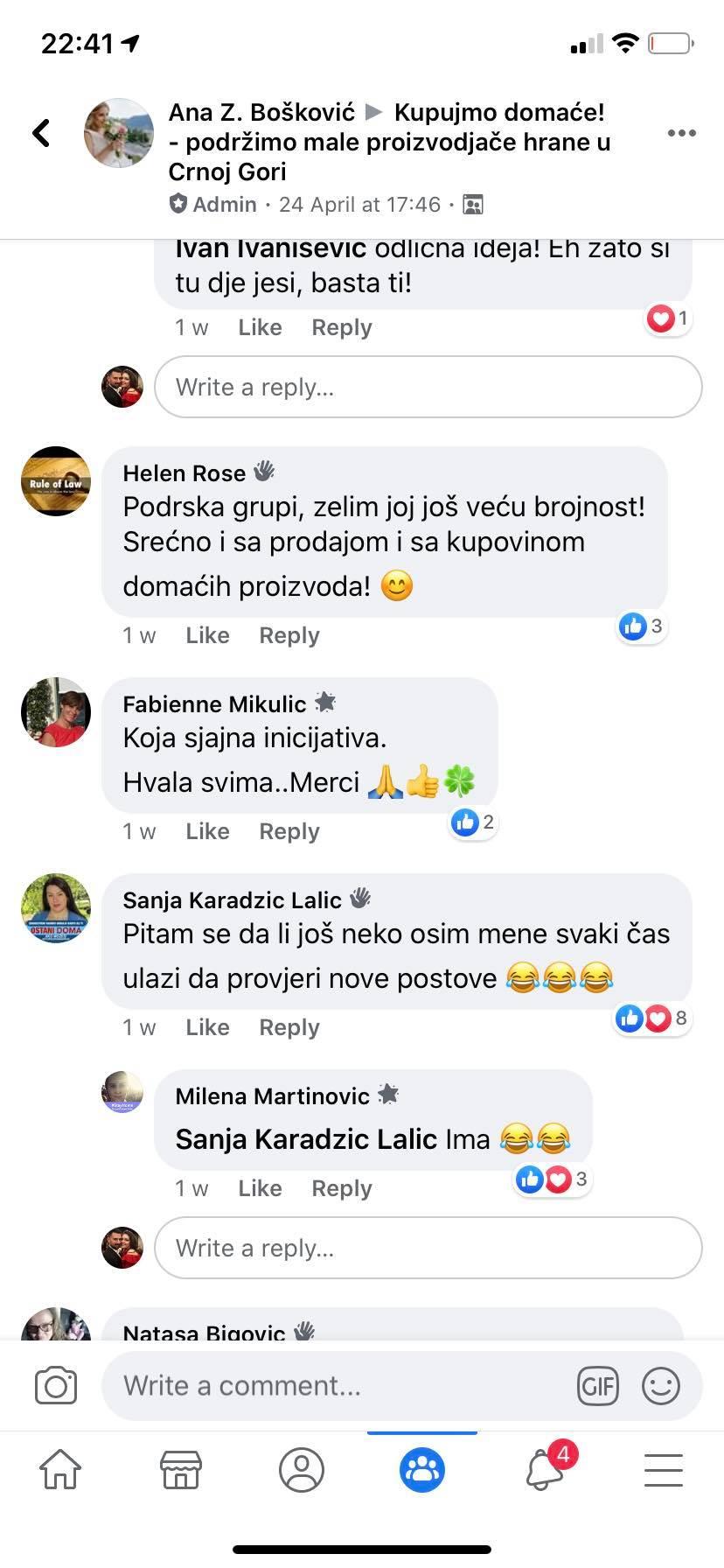
TMN: The whole project is non-profit and non-commercial. Still, due to the high interest and the need for systematization of information, you want to improve it with adequate technological support. Although the contacts of the producers of various food products can be searched quite successfully in the FB group itself, the network you have formed requires a user-friendly platform.
TMN: Do you believe that this way of product placement can have a positive effect on the increased volume of domestic food production, given that the costs of product placement are reduced?
TMN: Were fishers involved? Do you think that this approach can be extended to other spheres of local economies?
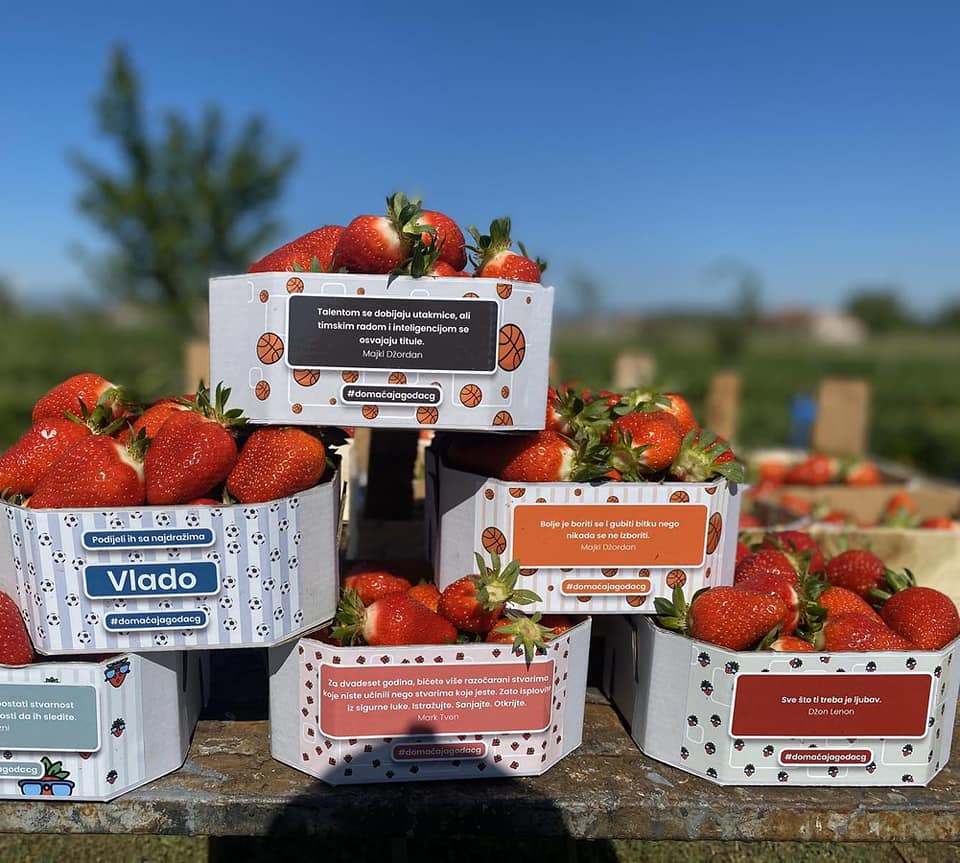
"Honey and Olive Days in Grbalj", the promotion of home honey and olive oil will be organized by Beekeepers’ Society Grbalj, in cooperation with the Olive Society “Boka” on Saturday, 17 August. The event will take place at PC VUKSIC in Radanovici (roundabout at Kotor intersection) from 8 AM until 8 PM, bringing different exhibitors and their products.
One of the beekeepers is a great nature lover from Radanovići, Donja Sutvara, otherwise a medical technician by profession, Petar Cimbaljevic. Peter grew up in the north of Montenegro, Berane, where he discovered his love for nature, and besides beekeeping, he also practices pigeonry.
“I have been involved in beekeeping since 1995. with my father and independently from 2007, says Petar for TMN. “I have been a member of the Grbalj Beekeepers Society since its inception and have participated in many events in most cities in Montenegro. I currently have over 30 beehives. The apiary is located in 2 locations. The wintering of bees is in Grbalj-Radanovica, and from May to mid-September I move them to Mount Lovcen. 
We currently have 4 types of honey: wormwood, heather, forest and bramble and I also hope for 5 types of magina product, it blooms in the month of October so that the honey crop should be in November.
According to the number of beehives and the types of honey I have, I claim to be unique in this region, primarily because of the quality and even for the amount of product per beehive. In addition to high quality home-made honey, our property also offers: propolis drops, Honey brandy, honey in honeycomb, pure beeswax, apple cider vinegar. I am a manufacturer of both nuts and swarms, both for my own needs and for sale.”
Inviting fans of bee products to come to the event in Radanovici on Saturday, Cimbaljevic, as a real host, invites them to visit him: “I invite all goodwill people to come to my apiary to try my products and hang out”.
Surely, there is a lot to see and try at the Cimbaljević estate, but apart the busy bee's sweet side, don't forget the pigeons!
17 July 2018 - The online course of the Montenegrin language arose as an institutional need and a response of Montenegrin state authorities and institutions to the needs of the country’s emigration, said Assistant Director of the Directorate for Diaspora, Ivan Jovović, during a recent press conference aimed at promoting the course.
The cooperation agreement between the Directorate for Diaspora and the Faculty of Montenegrin Language and Literature from Cetinje, concluded in March this year, defines cooperation on various projects, primarily assistance in the education of the diaspora in the field of Montenegrin language and culture of Montenegro, and other forms of educational and cultural cooperation, since the language is the basis for the preservation of the identity of a national community. This project represents an opportunity to show that the Directorate for Diaspora has enabled even better communication with all those who see Montenegro as their home country or country of origin, which in turn has a major impact on the intensified cooperation between Montenegro and its diaspora.
The Vice-Dean of the Faculty of Montenegrin Language and Literature Ethem Mandić also spoke at the press conference, expressing satisfaction with the online course project and noting that "connections through language and culture are the basis for preserving identity, and the transfer of language to as many speakers and its popularization not only in the diaspora, but in other cultures should in general be the primary goal of Montenegrin language-cultural policies, and this course is just one of the steps that have been taken and implemented in this regard”.
The Montenegrin language online course is composed of ten lessons of multimedia and interactive type that are segmented into basic grammar and general communication categories. All lessons contain audio examples of the pronunciation of the word and their meaning in English, Spanish, Turkish, and Albanian. At the end of the lessons there are short revisions of the material being processed, while at the very end of the course, a revision of the entire processed material is designed, which offers the users the possibility of verifying the acquired knowledge.
The most Montenegrin diaspora is in the English, Turkish, Spanish and Albanian linguistic areas, and therefore the online course in Montenegrin is available in these languages. The project is the result of cooperation between the Directorate for Diaspora and the Faculty of Montenegrin Language and Literature from Cetinje.
12 July 2019 - The conclusions after the twenty-third Smell of Linden and Honey Festival recently organised in Cetinje are that due to the high quality to which domestic producers pay great attention, but also because of all the measures that are being taken to market original and safe products, traditional, autochthonous, quality Montenegrin honey can be considered as a national brand.
At the Smell of Linden and Honey Festival, all visitors could find honey from Mount Lovćen, sage’s honey, honey from Ljubotinj, mead, propolis, propolis drops, propolis spray, propolis balm, honey with black chocolate, bee wax etc.
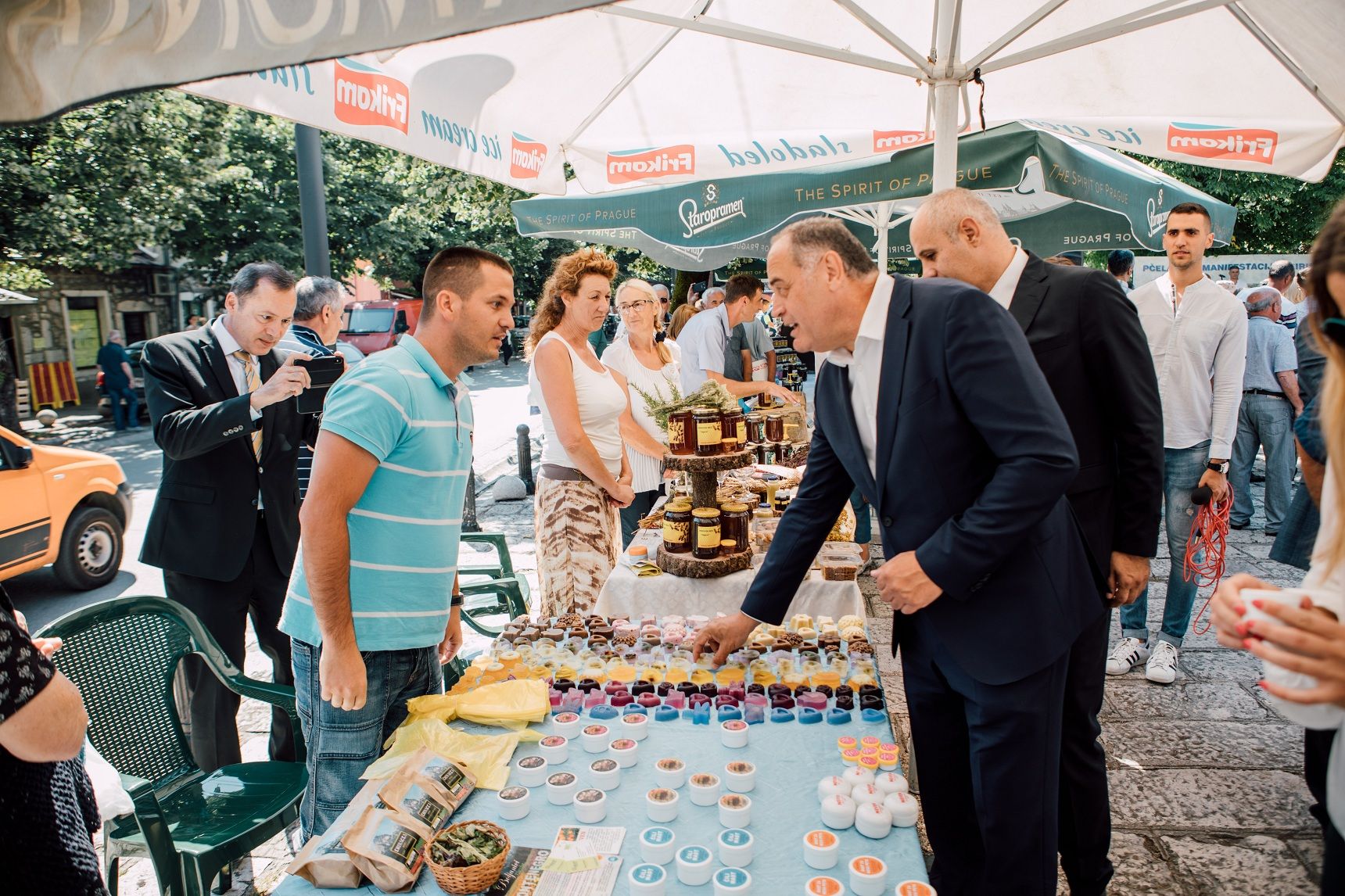
Deputy Prime Minister Milutin Simović visited the manifestation at the Balšići market, which gathered 50 exhibitors from Montenegro and the region. During his visit to the Festival, Mr Simović concluded that he believes that by working together, Montenegrins can make an extra step in the production and placement of larger quantities of honey and honey products on the market. "The manifestation Smell of Linden and Honey Festival is the work of hardworking hosts - beekeepers who successfully connect their business with generous gifts of nature of this area, traditional, autochthonous, quality Montenegrin honey. This business is our chance and the opportunity we are trying to valorize, the joint efforts of the beekeepers, the Old Royal Capital of Cetinje, as well as other local governments, beekeeping associations and the Federation of Beekeeping Organizations and the Government, which has been creating more and more support to the agriculture sector, especially beekeeping for a number of years,” assessed Simović.
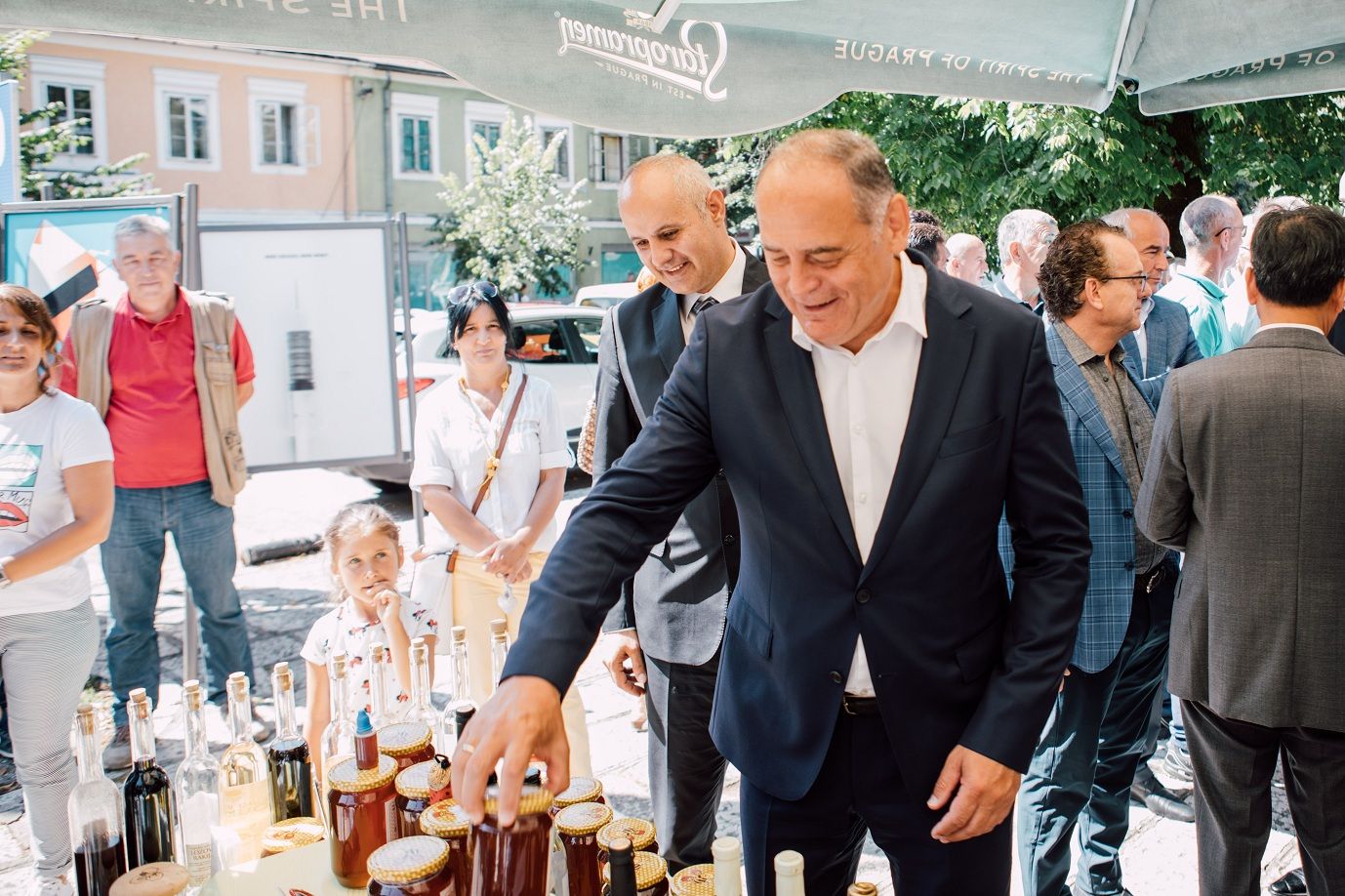
Opening the manifestation, the Mayor of the Old Royal Capital Cetinje, Aleksandar Kašćelan, estimated that thanks to the proactive policies and incentives of the Government of Montenegro, beekeeping is becoming more and more popular and more profitable. He assessed that in Montenegro, honey can be rightfully referred to as a national brand. "First of all, because of the quality to which domestic producers pay great attention, but also because of all the measures that are being taken to market the original and safe products. This is especially because of the good prospects for the placement of large quantities of the honey produced in Cetinje and generally Montenegro on European and other markets, which highly value brand and good image,” said Kašćelan.
The smell of Linden and Honey Festival 2019 was organized by the Association of beekeepers Cetinje, with the support of the Cetinje Municipality, the Tourist Organization of the Old Royal Capital and the Ministry of Agriculture and Rural Development.
Read more about goods from Montenegro at TMN's dedicated page.
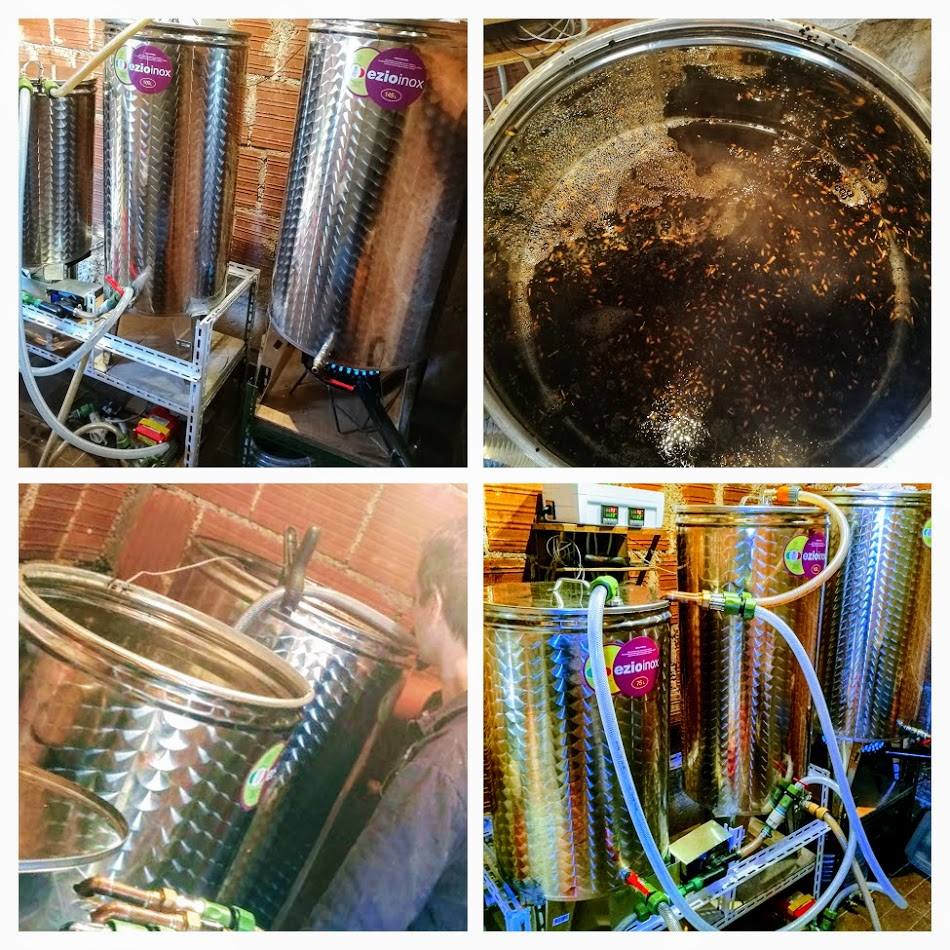 Craft Brewery Fabrika, Risan, Copyright: Fabrika FB page
Craft Brewery Fabrika, Risan, Copyright: Fabrika FB page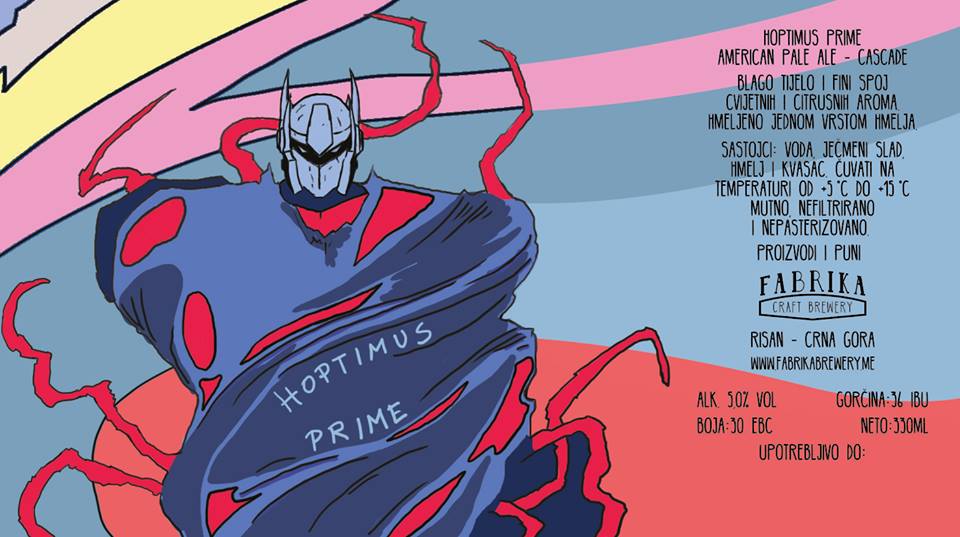 Kraft Brewery Fabrika's Design Signes well known designer, Vuk Bojanić
Kraft Brewery Fabrika's Design Signes well known designer, Vuk Bojanić29 March 2019 - Voli Trade company introduced Our Garden Project which is currently being carried out in Šas, near Ulcinj, where the agricultural production had developed at 70 hectares of land, which has not been used for 25 years.
"Products of this new project are already in stores and buyers have the impression that they got them from their garden since everything is so fresh," said Paul Foli, member of the Board of Directors of Voli Trade company.
Foli spoke about the plans of Voli Trade and announced the possibilities of extending activities abroad. He also said that the domestic market offered excellent chances.
“We are successful, people from the region know us, so, there is a possibility of extending activities abroad. For example, tourists from Serbia already heard about Voli Trade. They come to Montenegro, see our brand, and they like it. The turnover in the stores at the seaside doubles thanks to the clients outside Montenegro. We are constantly searching for the opportunities, but we also never forget that the domestic market is our great opportunity too”, said Foli.
He explained that it is possible to increase the share of the Montenegrin market by modernizing existing stores, with their better and more appealing appearance, with better training of the staff and seasonal orientation.
"Logistics and Distribution Center of Voli Trade is a success story, and we are very satisfied with this investment,” said member of the Board of Directors of Voli Trade company.
“One-third of everything we sell goes through the LDC. This way, we provide our services for the clients in the wholesale more professionally and efficiently. Therefore, the whole company has two functions - taking care of 70 selling stores, and providing services for the wholesale, restaurants and small chains. Now, we can deliver packages to LDC first and then send them to the store, when necessary. That means our goods are fresher and our clients appreciate that,” pointed out Foli when speaking about Our Garden Project.

He also emphasized that Voli Trade is a success story and that the employees should not worry about their job.
He made a comparison with some trading chains in Europe and stated that they could still work on some technological solutions.
“It is still the case that the employees here measure fruit and vegetables. That is old-fashioned from the aspect of costs and speed and efficiency,” said Foli.
There is so much more positive atmosphere and enthusiasm in Voli Trade than in many western companies.
“What has been maintained in Voli Trade is the soul, the spirit. The owner knows most of the employees; personally, the employees know each other, and it is so much easier to overcome challenges if the management is not divided from its people. I am sure many western companies would love to be able to copy that, but they cannot find the right way,” concluded Foli.
20 March 2019 - Gastronomic delicacy Durmitor's Clotted Cream will obtain the Protected Designation of Origin, thus becoming a product branded by Montenegro, which means it will gain a new value as a high-quality product and create additional income for its producers.
Montenegro is renowned for its clotted cheese, a tradition rooted in the rural population of the country and which the inhabitants of the north called “Durmitorski skorup“.
Durmitor's Clotted Cream, the sixth gastronomic product branded by Montenegro, is now protected at the national level by the designation of origin. The benefits of certification of the quality label will be passed on to the cream's producers from the territory of Žabljak, Plužine and Šavnik, which will all become part of a new NGO - Association of Durmitor’s Clotted Cream Producers, the Ministry of Agriculture announced.
The complex process of production of clotted cream, which leaves no room for error, makes the quantities of this product very limited. The taste, as well as the overall quality of the clotted cream, depends on the temperature, air and acidity. The producers from Žabljak, Plužine and Šavnik will now have even more important task, to preserve the quality and justify the award and recognition their product has gained.
In addition to the Durmitor’s Clotted Cream, Montenegro has branded five more products during 2017 and 2018: Prosciutto from Njeguši, Cheese from Pljevlja, Montenegrin Beef Prosciutto, Montenegrin Dry-Cured Sheep Meat and Montenegrin Prosciutto.
Completion of the procedure for the branding of the Kolašin Leafy Cheese is expected soon.
With the continuous commitment of local restaurant operators, Montenegrin cooking tradition is passed on through the generations with subtle changes to meet the more modern tastes and likes, while preserving the delicate peculiarities of old recipes.
The protection stamp will mean a new step forward for Montenegro in the area of product quality policy, improvement of domestic production and creation of new jobs and more dynamic development of the local economy.
10 February 2019 - Deputy prime minister and agriculture minister Milutin Simović recently visited Kolašin and said that the famous leafy cheese from Kolašin (the name is derived from its specific texture – thin, almost transparent layers) is going to be the 6th Montenegrin protected product, which means it will get a brand new value and thus additional income for its producers.
Minister Simović said at the meeting with the representatives of the Association of Producers of this famous leafy cheese from Kolašin, who submitted the request for obtaining the official mark of origin, that is, protection of this product at the national level, to the Ministry of Agriculture and Rural Development.
The president of the Association, Milovan Vlahović, said this procedure started three years ago along with the project of the Employment Agency of Montenegro when it was decided to set up an association that would assist the local farmers.
“Then we decided to initiate the process of protecting the geographical origin and branding of the leafy cheese from Kolašin,” said Vlahović.
The process itself is in its final phase, i.e. there is one more month to be completed entirely, according to him.
The protection sign will mean a new step forward for Montenegro in the area of product quality policy, improvement of domestic producers, and creation of new jobs and more dynamic development of local and entire Montenegrin economy.
Montenegrin prosciutto is the most recent product that was approved under protection in Montenegro, taking place in December 2018.
“According to the Producer’s specification, Montenegrin prosciutto is the durable, dried meat product, processed from the ham of pig, dryly salted and coldly smoked and then it went through the process of drying. This entire process lasts at least one year. The application of the traditional production procedure, without any additions, other than sea salt, with the process of burning of the beech tree, results in the product that has recognizable smell, texture and taste”.
Before this, in the last two years, five products have been protected: “Njeguški pršut” (Prosciutto from Njeguši), “Pljevaljski sir” (Cheese from Pljevlja), “Cronogorski goveđi pršut” (Montenegrin beef prosciutto)“ and “Cronogorska stelja”.
February 9, 2019 - Olive, Wine and Healthy Food Fair within the Great Bokelian Fiesta, part of the official program of the 50th Mimosa Festival, officially began in front of the House of Culture in Bijela. Guests had the opportunity to visit stalls with local products and handicrafts and enjoy a cultural and entertainment program.






